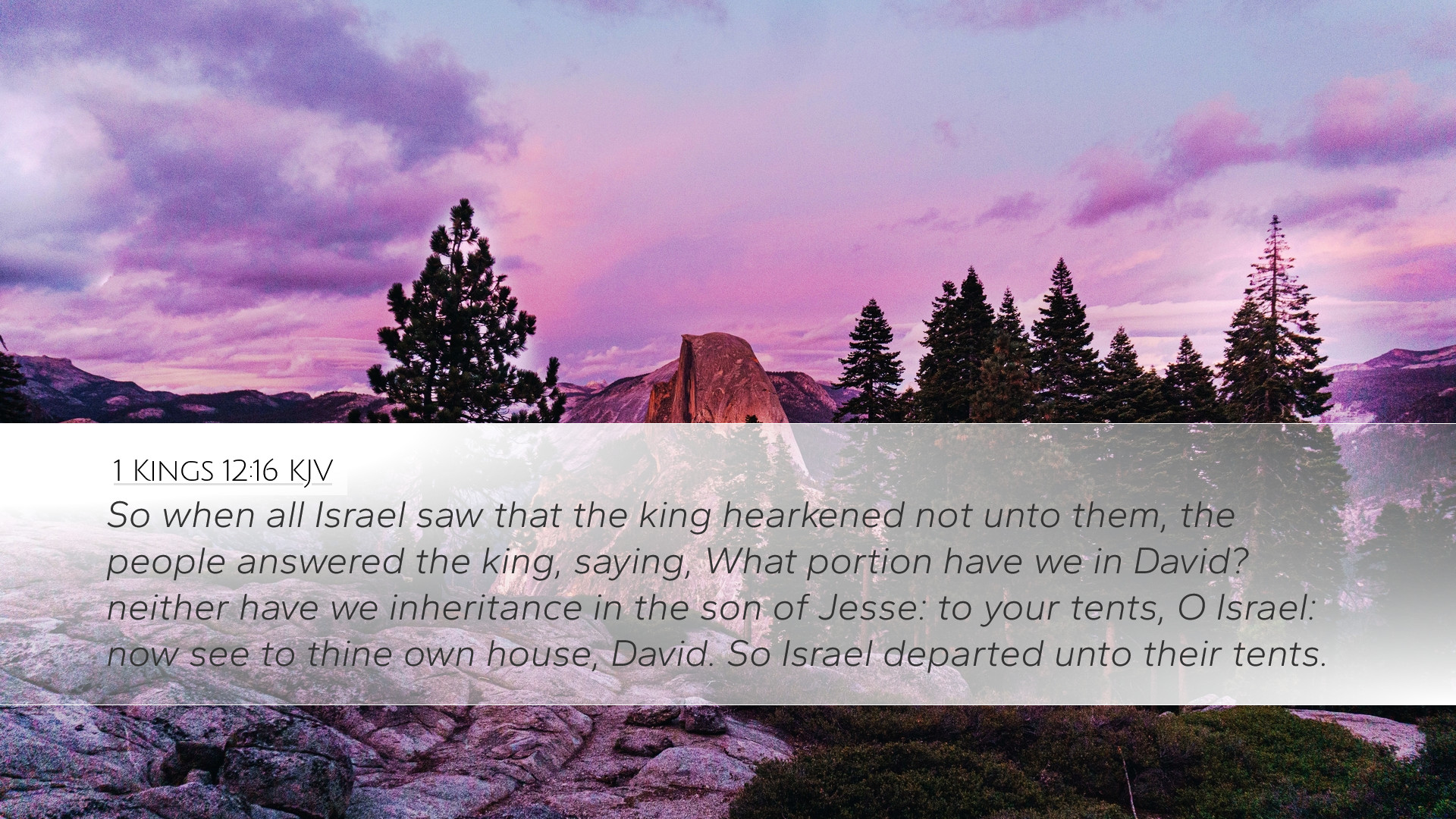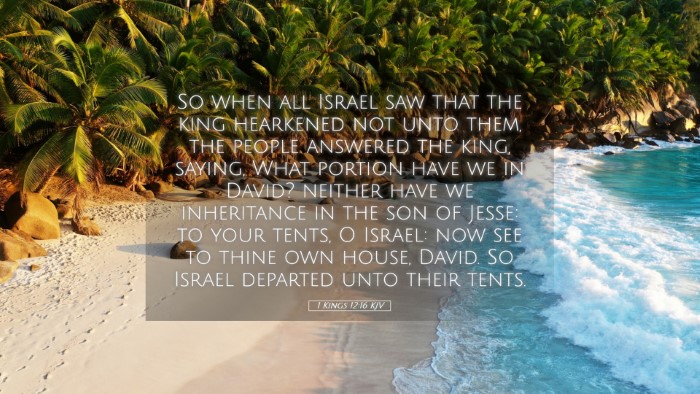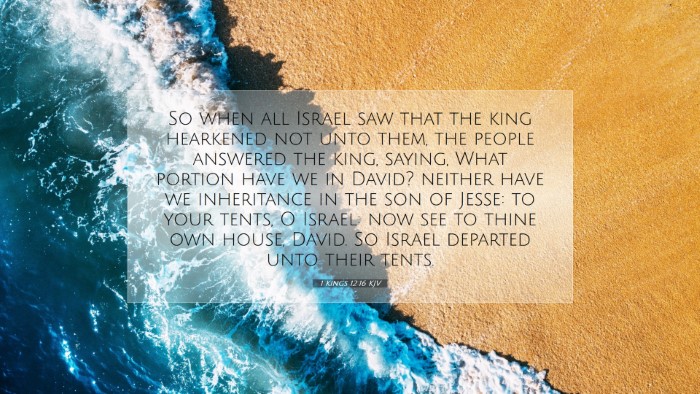Commentary on 1 Kings 12:16
1 Kings 12:16 states:
"So when all Israel saw that the king did not listen to them, the people answered the king, saying: 'What share have we in David? We have no inheritance in the son of Jesse. To your tents, O Israel! Now, see to your own house, O David!' So Israel departed to their tents."
Contextual Overview
The events surrounding 1 Kings 12:16 are pivotal in Israel’s history, marking the division of the kingdom into the northern kingdom of Israel and the southern kingdom of Judah. This verse captures a moment of critical tension and dissatisfaction amongst the people of Israel following the ascension of Rehoboam as king, illustrating the profound shifts in political and spiritual leadership that occurred.
Historical Background
- The Reign of Solomon: Prior to this division, King Solomon had ruled with great wisdom, but his later years were marked by idolatry and heavy taxation, which led to discontent among the Israelite populace.
- The Rise of Rehoboam: After Solomon’s death, Rehoboam’s ascension marked a transition. He sought counsel on how to govern, but his harsh response to the grievances of his subjects seeded division.
Analysis of Key Phrases
This verse presents several important phrases that deserve further examination.
- “What share have we in David?”
This rhetorical question encapsulates the crux of the people’s rebellion. They were expressing a complete disconnect from the Davidic line, indicating a rejection of the legitimacy of Rehoboam’s reign.
- “We have no inheritance in the son of Jesse.”
The reference to Jesse—David’s father—suggests a deep-rooted rejection of the Davidic covenant that once united them. This illustrates how deep hurt and disillusionment have fostered a collective identity separate from the promise made to David.
- “To your tents, O Israel!”
This phrase signifies a call to autonomy and personal agency, urging the tribes to retreat from a kingdom they felt no longer represented them. It symbolizes a physical and spiritual separation from Rehoboam's authority.
Commentary Insights
Matthew Henry's Commentary
Matthew Henry notes that this event illustrates the folly of rejecting wise counsel, emphasizing that Rehoboam's decision to listen to his peers rather than the elders constituted a turning point. He highlights how God uses these moments of discontent to fulfill His divine plans, and that through these trials, God’s sovereignty remains paramount. Henry remarks on the nature of the people's governance structure, suggesting that godly rule must engage the consent and well-being of the governed.
Albert Barnes' Notes on the Bible
Barnes provides a detailed exegesis of the political implications of this passage. He posits that the people's rejection of Rehoboam serves as a warning against poor leadership. The phrase “to your tents” is particularly striking to him, signaling a return to the tribal divisions that existed before the monarchy. Barnes also notes that the division was not merely political but carried deep implications for Israel's spiritual identity and covenantal relationship with God, which would echo throughout subsequent generations.
Adam Clarke's Commentary
Clarke offers a historical context regarding Israel's national identity and loyalty to the Davidic line. He emphasizes the irony that Rehoboam inherited a united kingdom yet saw it splintered at his very ascension. Clarke also speaks on the motivations of the people, which included both the burden of Solomon’s reign and a desire for representation, reflecting a broader human longing for just and compassionate governance. He suggests that this rebellion was not merely political but encompassed fear, disillusionment, and a thirst for equity and justice.
Theological Implications
The theological ramifications of this rebellion highlight God's enduring faithfulness even in human failures. The division of the kingdom is a profound reminder of how human choices impact divine plans. It warns modern leaders about the need for humility, wisdom, and the importance of godly counsel. It also provides a glimpse into the heart of God’s people, displaying their deep longing for righteous leadership and clarity in governance.
Conclusion
1 Kings 12:16 stands as a sobering reminder of the complexities of leadership and the consequences of decisions made in the realm of power. For pastors, theologians, and scholars, this verse invites reflection on the nature of authority, the importance of discerning counsel, and the ever-present need for leaders to remain in tune with those they serve. It underscores that at the heart of governance should be a relentless pursuit of justice, compassion, and fidelity to God’s covenant.


